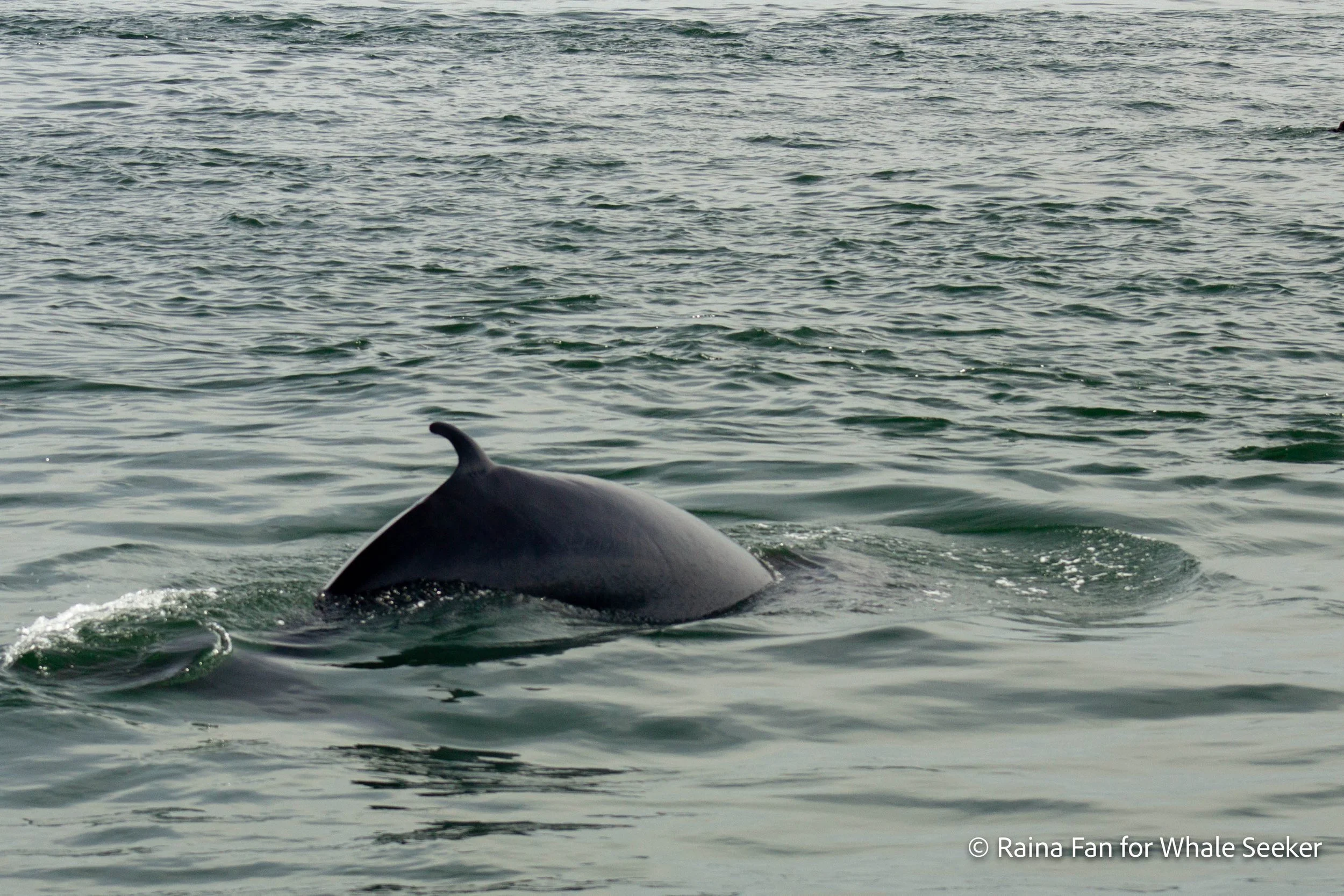Whales in Montreal remind us of our ocean connection and responsibility
Minke whale; photo by Raina Fan| Whale Seeker
What a week it’s been for whale lovers in Montréal. Over the last few days, not one but two juvenile minke whales arrived in the waters surrounding our city. Over 400 km away from their natural habitat, their presence near the city is a great cause for concern.
The waters around Montréal are not a great place for whales. For one, their bodies will feel extra heavy in freshwater. They are also likely distressed and disoriented by the high levels of noise and traffic in near the busy Port of Montréal. In 2020, a humpback whale that made its way to the same area died tragically from a ship strike.
A humpback whale breaches in front of the Biosphere, Montreal, 2020. Photo by Erwan Kroun/ Instagram: @erwan_km
Unfortunately, the problem of ship strikes is not rare, and maritime activity poses a huge and worsening threat to whales globally. We urgently need stricter, more enforceable rules about limiting boat speed and distance from whales. To be effective, these regulations must be coupled with better monitoring systems. Ports, boaters, maritime operators, conservationists, and regulators all have a role to play in reducing collisions, and this starts with developing tools to better keep track of whales and democratizing access to these data.
At Whale Seeker, we believe whale detection tools should be standard aboard all ships and maritime operations. Operators alerted to whales in their zone can slow down or reduce noise levels, which saves whale lives. We are building AI tools for automated detection from imagery to make these dynamic alert systems a reality.
Experts are not yet sure if there is an underlying environmental cause for these remarkable appearances – but with three lost whales in less than two years, it certainly feels like these noteworthy natural events are becoming more frequent. As sea levels rise and global climates change, the ocean is quite literally knocking at our door, and we are woefully unprepared to greet it.
In our interconnected world, every single person depends on oceans. Oceans supply half of the oxygen we breathe, nourish billions of people, and are a part of our cultural heritage. Oceanic shipping routes, including the Great Lakes St. Lawrence Seaway, are the lifeblood of our globalized economy. These wayward whales remind us of the deep impacts of human activity on our ocean ecosystems.
We should NOT have to wait with bated breath and just hope for these whales to make it home safely. Humans and whales can and should co-exist – we just need the tools and willpower to make it happen. It is our responsibility to take proactive action to protect whales!


